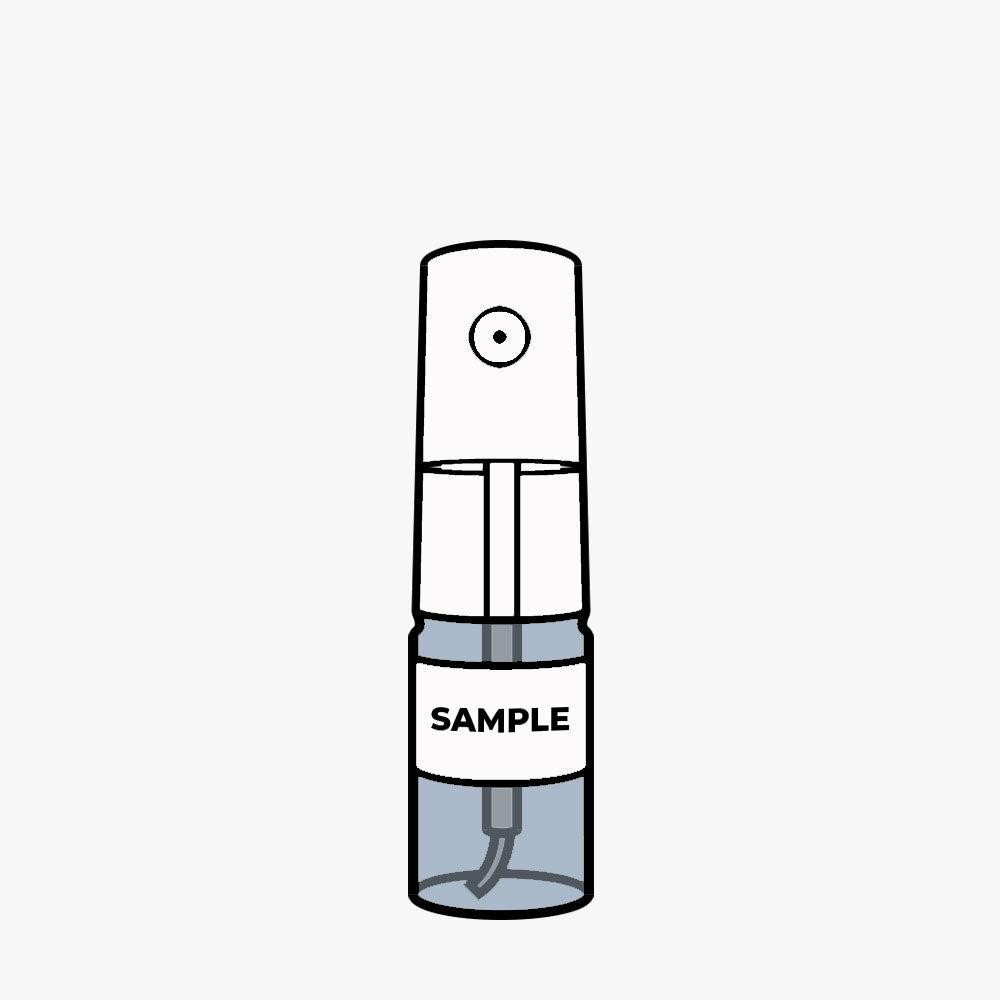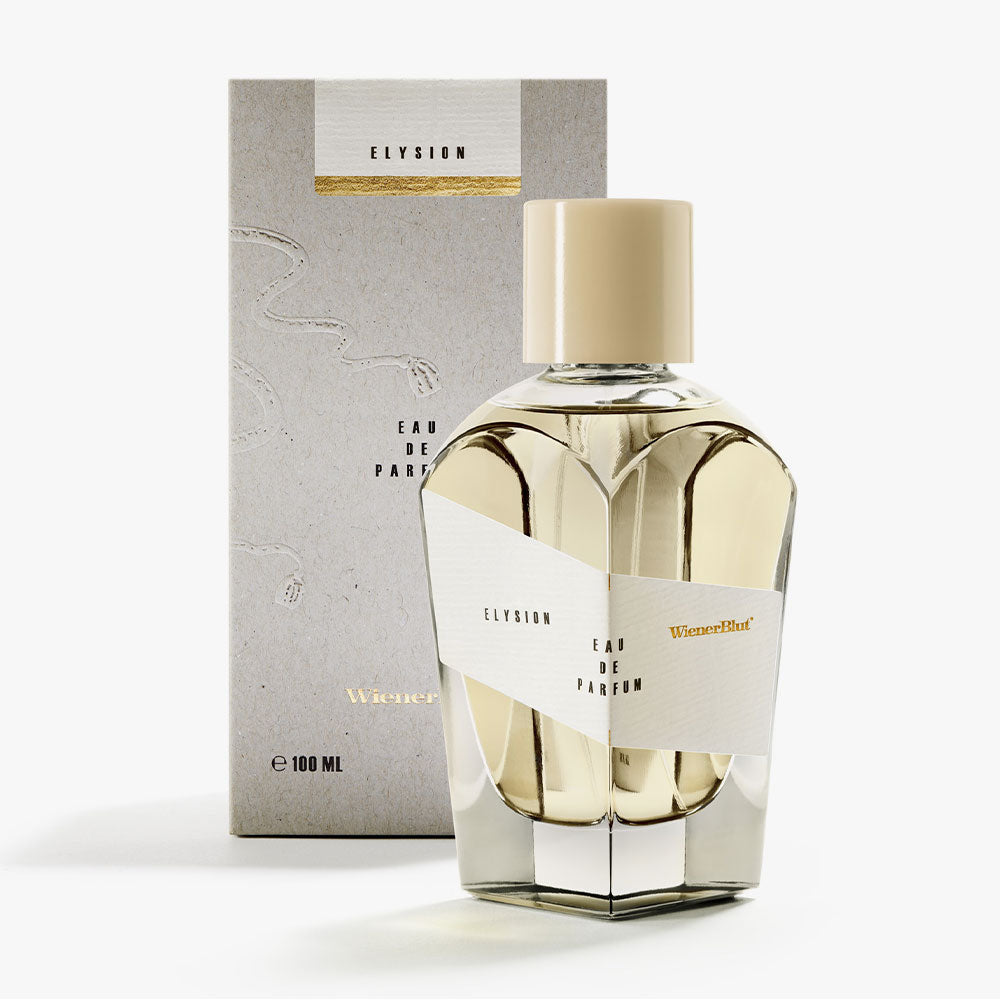

Elysion – Eau de Parfum – Sample
incl. VAT. Shipping costs will be calculated at checkout
Delivery time 1-3 business days
A scent as elusive as Klimt's golden vision of the Elysian Fields – "an ideal realm where we can find only pure joy, pure happiness, pure love."Elysion wears like a subtle, immaterial cloak of bright light, green freshness, and muted floral notes.
This olfactory representation of Gustav Klimt's Beethoven Frieze – a monumental, 34-meter-long cycle of paintings in honor of Ludwig van Beethoven – tells the story of the right side of the painting, which depicts the "ideal realm" full of angels, joy, love, and happiness. This refined fragrance combines the refreshing scent of cedrat, the soothing aroma of angelica root, and the delicate essence of fig leaf. As one immerses in the scent, the subtle warmth of red pepper and the intoxicating allure of mimosa greet you. The floral elegance of water jasmine adds a touch of sophistication, while the mysterious Iso E Super creates a captivating aura that surrounds you. As the fragrance settles on the skin, the rich and sensual notes of amber and musk unfold, leaving a trail of irresistible allure. The final hint of cedarwood gives this enchanting composition depth and a touch of bright, woody sophistication. Elysion is more than just a perfume; it is an olfactory journey that transports you to a realm of pure bliss. With its harmonious blend of notes, this fragrance evokes feelings of confidence, joy, and elegance.
The other side of this story is told by Therion, which represents the "hostile forces."A dark, spicy warmth reveals the presence of the great beast Typhon or Typhoeus, who once ruled the deepest realms of Hades.
Details & Ingredients

Hinter dem Duft

Viennese Blood
More from Wiener Blood









